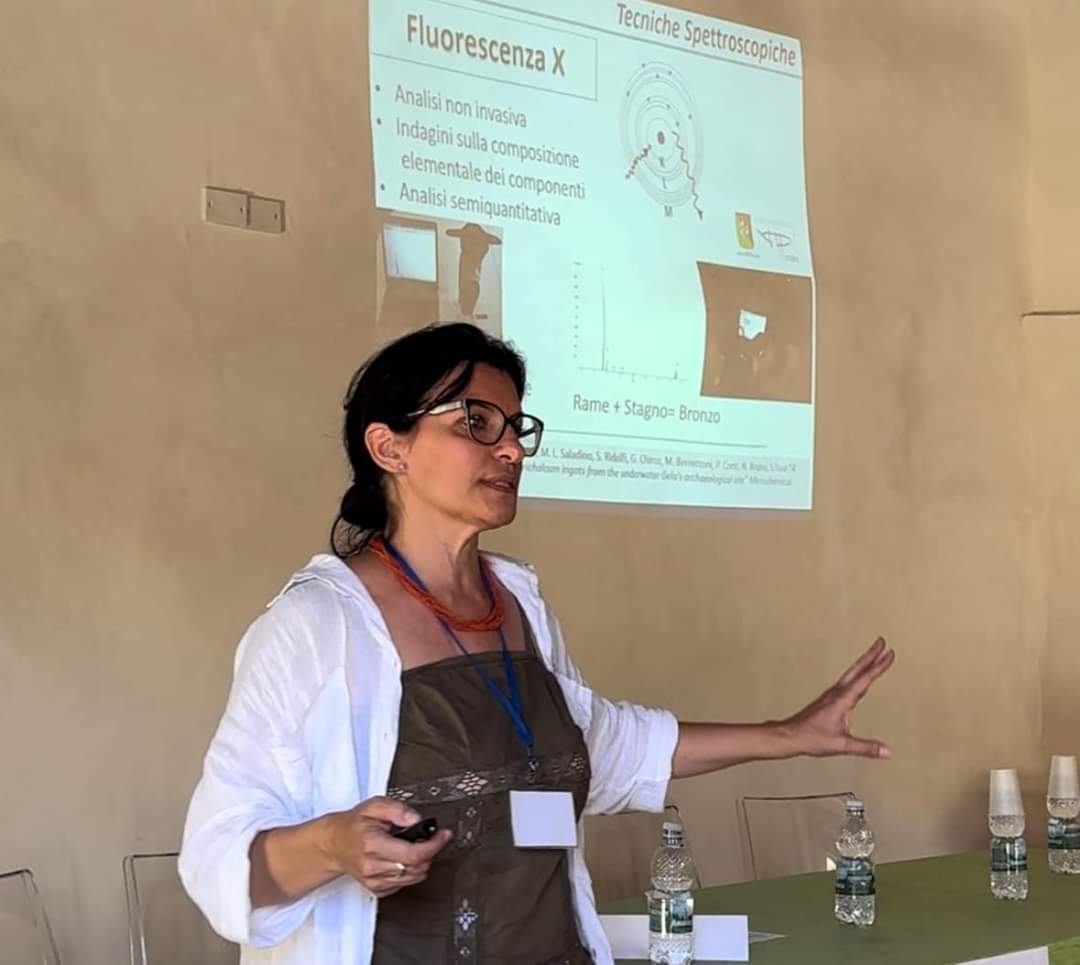
Can you tell us about your journey into studying chemistry? What led you to choose this field?
I decided to study chemistry after literature studies at Italian Classical High School, so totally different background. Yes, in Italy I studied ancient Greek and Latin, but after that I decided to move to a scientific disciplines because I was thinking it could be more interesting for me that the previous studies. Between all the disciplines, chemistry was the most interesting for me. Also because chemistry is a practical discipline. I was not thinking about the future job, but only that it could be something really interesting for me.
Could you briefly elaborate on the topics of "Chemistry and Archaeology: Interdisciplinary Approaches for the Investigation of Findings" and "Luminescent Materials as Anti-Counterfeiting Markers"? How did you decide to explore these specific areas?
After the graduation in chemistry, I was thinking to search a job more applied and useful for the communities. So, I started the PhD course in Chemical Sciences about the luminescent nanomaterials for laser and white light application. After the PhD, I started to cooperate with some museum, restores and with the archaeologists, even in some financed projects. Chemistry can help to understand the reason of the state of conservation of findings and can support the work of the restorers to find new solutions for saving and can support the studies of the archaeologists about the provenance of materials or to determine the authentication of an object. Mainly, I am involved in the investigation of metals and alloys (coins, weapons) and of paintings (on canvas, on wood, fresco).
What are your future plans for research and your academic career?
Since 2019, I am associated professor in physical chemistry at University of Palermo and the next step of the academic career should be to become full professor. But to apply for this position, it is necessary to have more experience in research projects or to be tutor of more PhD students. I hope it will be in the future.
What career opportunities do you see for chemistry graduates?
First of all, I'm thinking that the chemistry is a so general disciplines that can support many, many applied science. Students graduated in chemistry can find a nice job in many fields from the medicine, to materials science to the field of cultural heritage or the biotechnology, because if you are a good chemist you can cooperate with other people from other disciplines. And so, it's not difficult to find a job. Chemistry is in all aspects of the life. At the beginning of the carrier is better to have a strong preparation in the fundamentals of chemistry. Then the suggestion is to find a topic to be specialized. If you would like to have academic career you need to be passionate and patient because it's not easy because you need to start three years of PhD, then, 3-4 years of postdoc, then another position of researcher. It's also important to spend sometimes in other laboratories abroad and so on to demonstrate that you have the International Network of cooperation.
What advice would you give to students who are considering studying chemistry and thinking about their future careers?
The chemistry is, as I told you, really a fundamental disciplines and it can be useful in the lot of fields. So if you have a good preparations on the fundamentals of chemistry, you can work in a lot of fields and research fields, but also private companies. What I can tell is only to study to be well prepared and to have the open minds, because sometimes we think that the direction is one, but then there are some other opportunities and only to be with the open mind it's possible to see.
